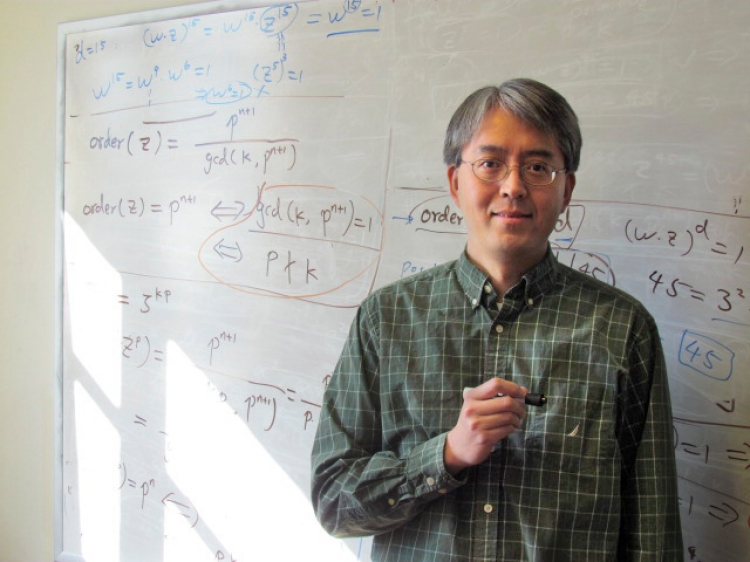
By
Professor of Mathematics Tao Li has been awarded a 2015 Simons Foundation Fellowship in Mathematics, granted to accomplished faculty for their recent research and the potential impact of their future work.
Li, who joined the BC faculty in 2005, is an expert in low dimensional geometry and topology, examining crucial questions about the fundamental properties of shapes in space.
The Simons Fellowship will allow Li to extend a sabbatical semester to a full-year sabbatical, conduct research, and attend seminars and conferences to work with collaborators.
“I’m grateful to the Simons Foundation for this award,” said Li. “The Simons Fellowship supports research and provides funding to attend conferences and visit with collaborators. It offers a semester of freedom to do research and I’m looking forward to getting as much done as possible.”
The Simons Foundation, a private foundation in New York City, aims to advance the frontiers of research in mathematics, theoretical physics and theoretical computer science.
Li is the third Boson College Mathematics faculty member to receive a Simons Fellowship in the last three years. Professor Martin Bridgeman was awarded a Simons Fellowship in 2013 and Professor G. Robert Meyerhoff received the award in 2012.
James P. McIntyre Professor of Mathematics and department chairman Solomon Friedberg said the fellowship is fitting recognition for Li’s accomplishments.
“I’m delighted to congratulate Professor Tao Li on this award,” said Friedberg. “His successes in working on the hardest open problems in his field have been striking, and I also appreciated his two years of service as assistant chair for graduate programs. I am confident that this award will lead to further mathematical discoveries by Tao of great impact.”
Li said he works mostly from “a purely mathematical perspective.” But topics in topology do tie into other disciplines such as theoretical physics and biology. He looks forward to new challenges that emerge during the course of research and problem solving.
“The more you study, the more questions you have,” said Li. “There are a lot of unsolved questions, especially in math. Some of these questions have been open for decades. I am trying to solve some of those questions as well as new questions.”



